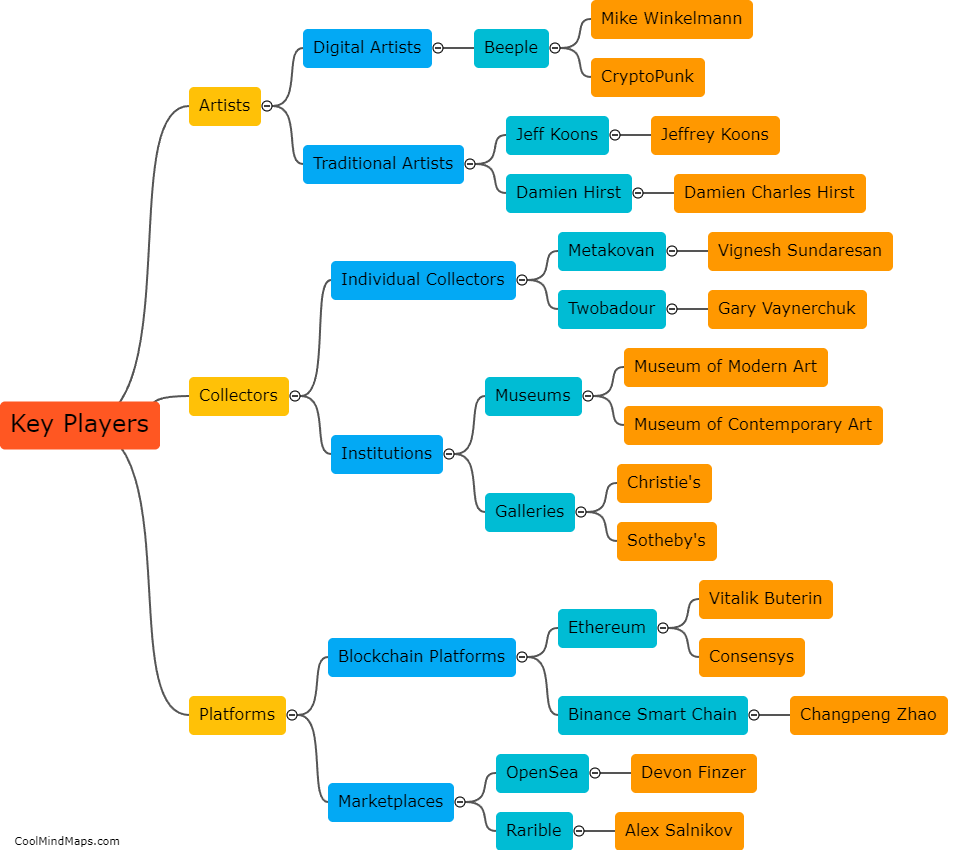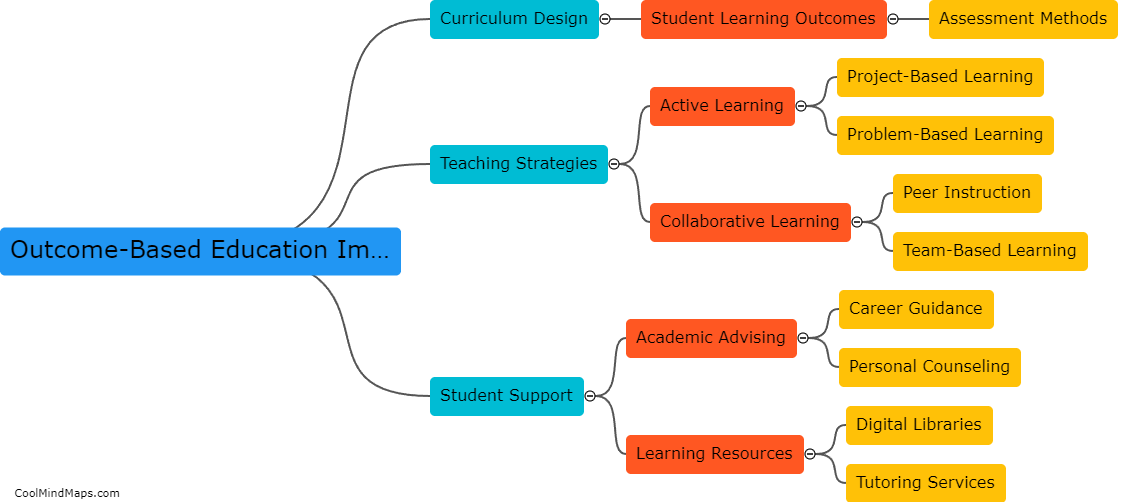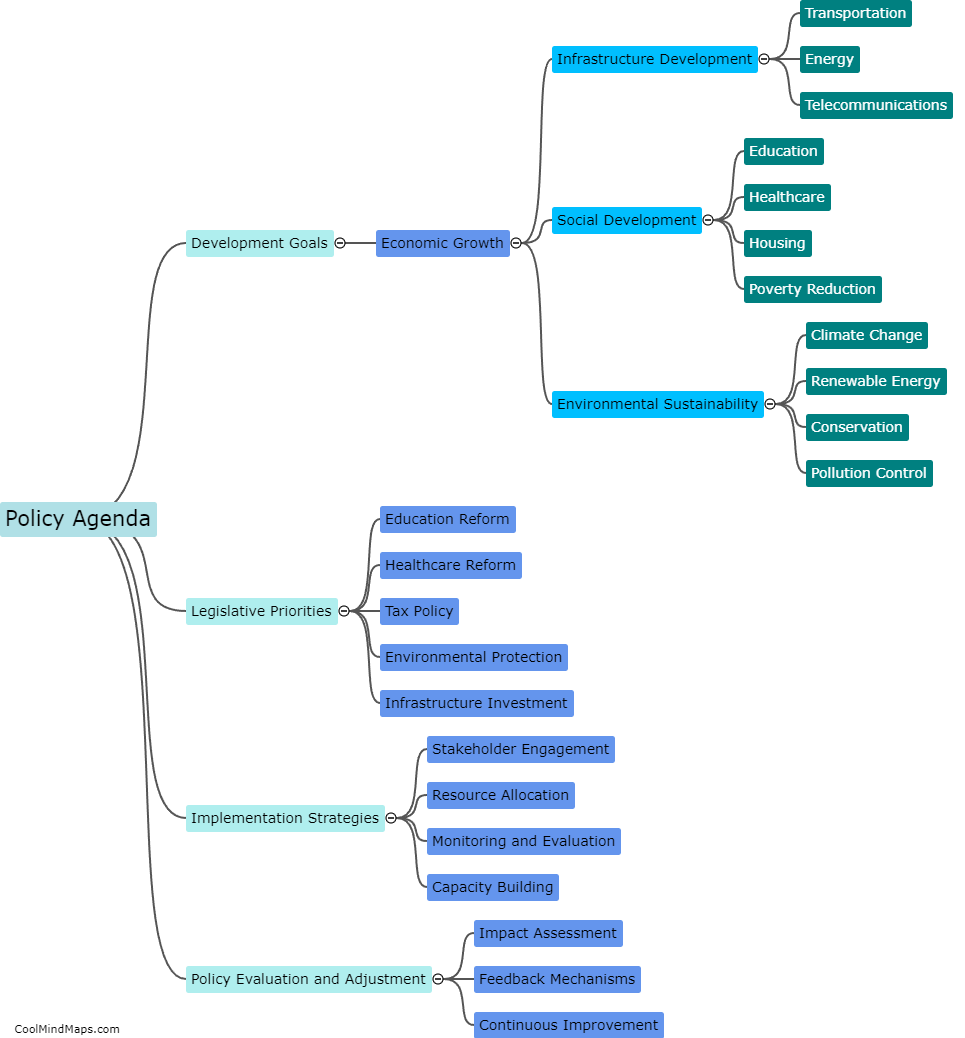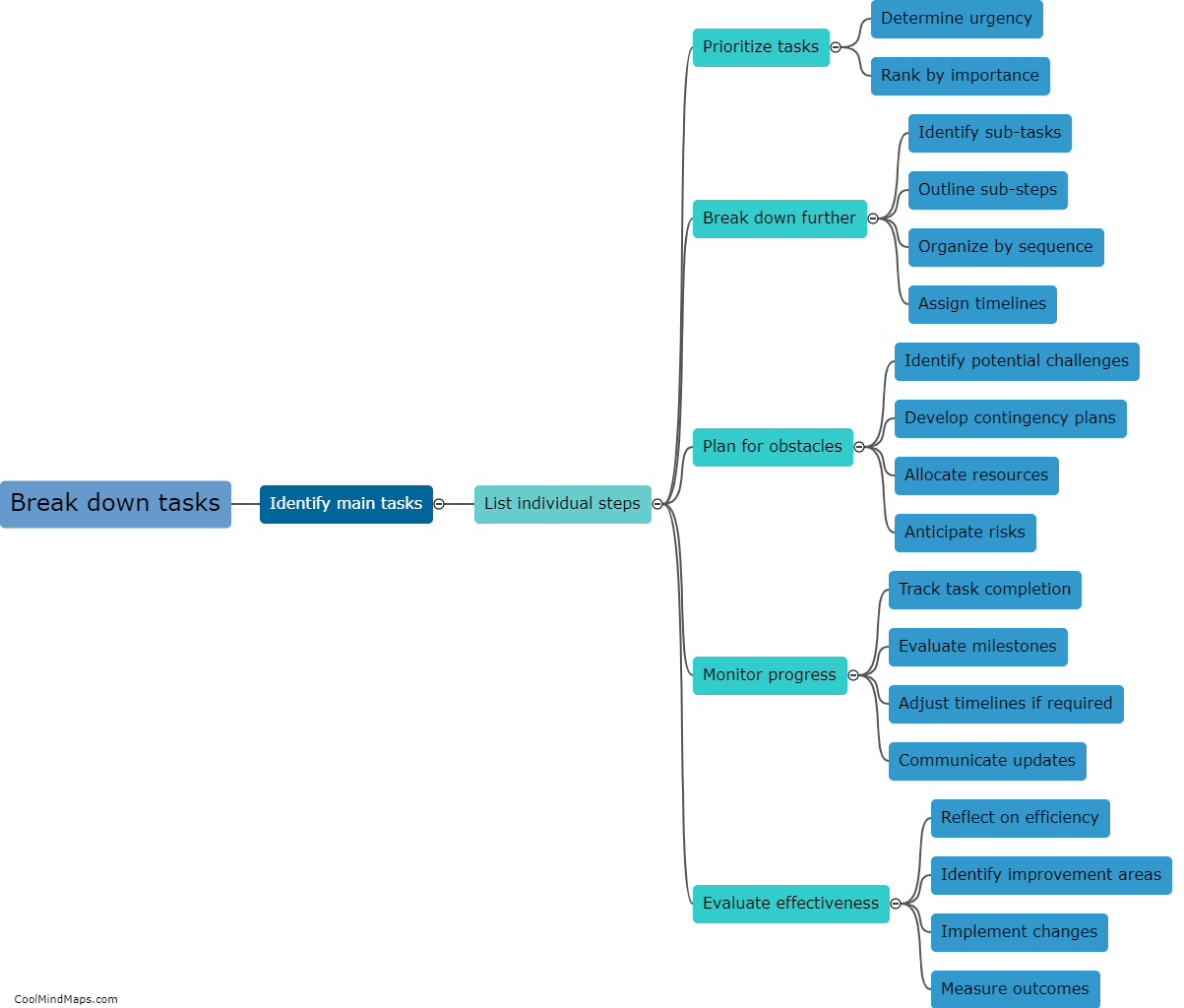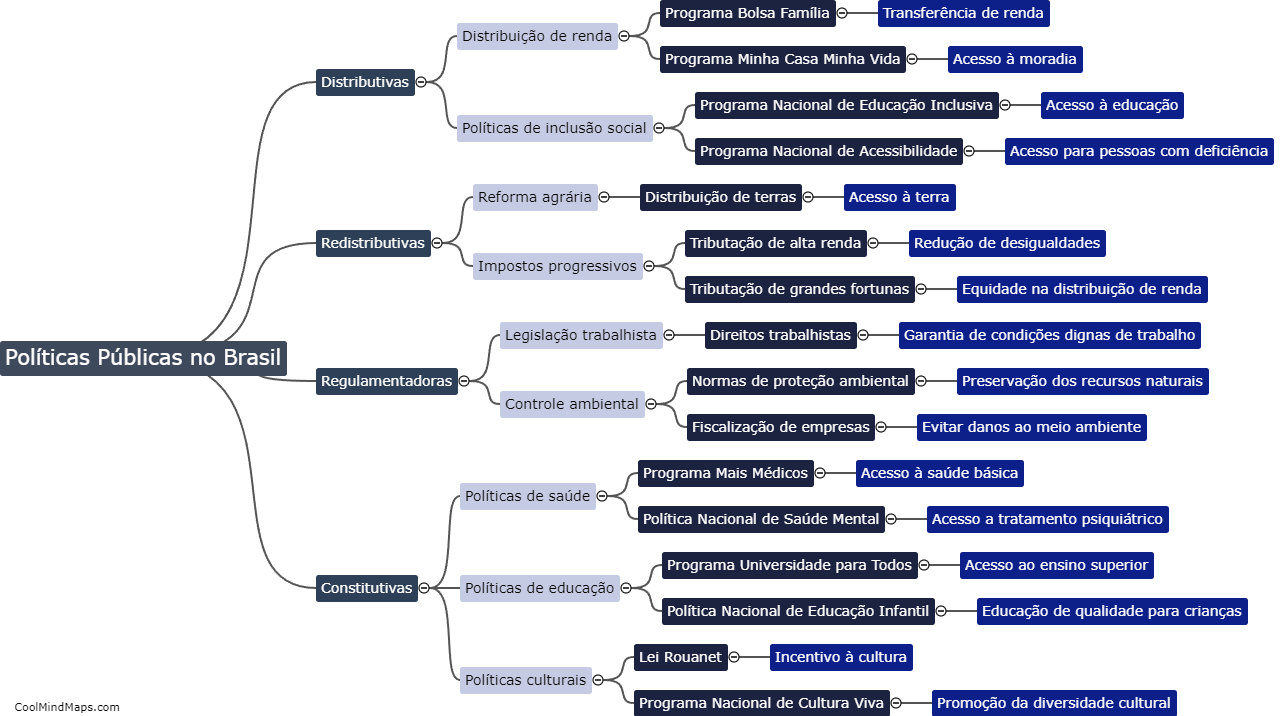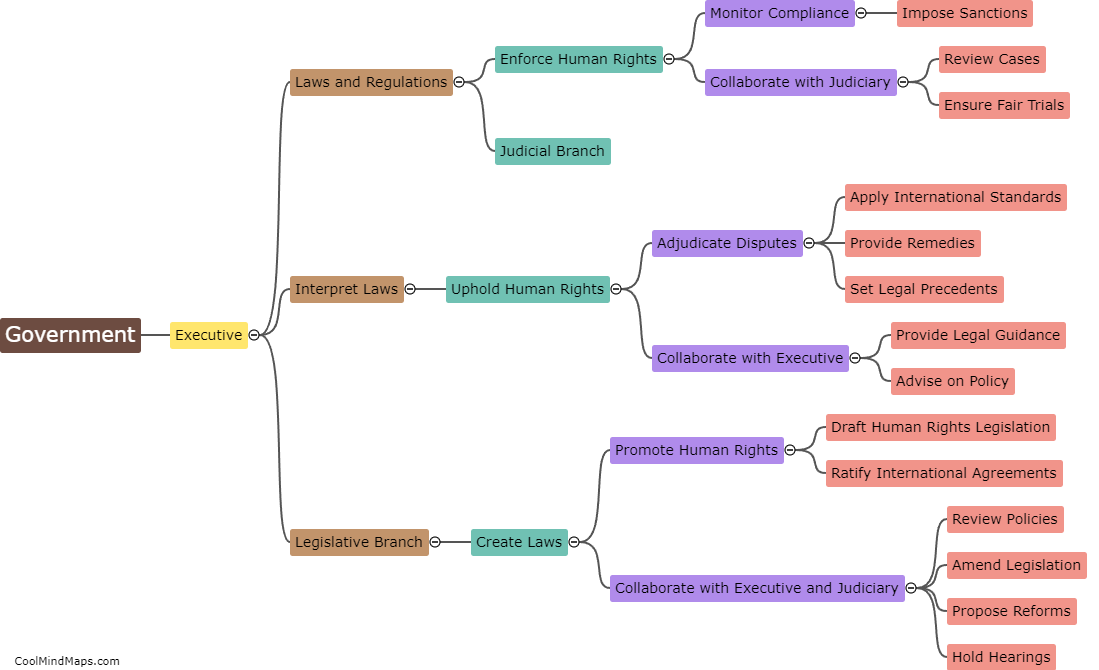What are distributive policies?
Distributive policies refer to government actions and initiatives that aim to distribute resources, benefits, or burdens to different individuals, groups, or regions within a society. These policies are designed to address economic, social, or regional inequalities and promote a fair and more equitable distribution of resources or opportunities. Examples of distributive policies include social welfare programs, progressive taxation, subsidies targeted at specific industries or regions, and affirmative action initiatives. These policies attempt to rectify disparities and support individuals or groups facing disadvantages, fostering greater social cohesion and promoting a more balanced and just society.
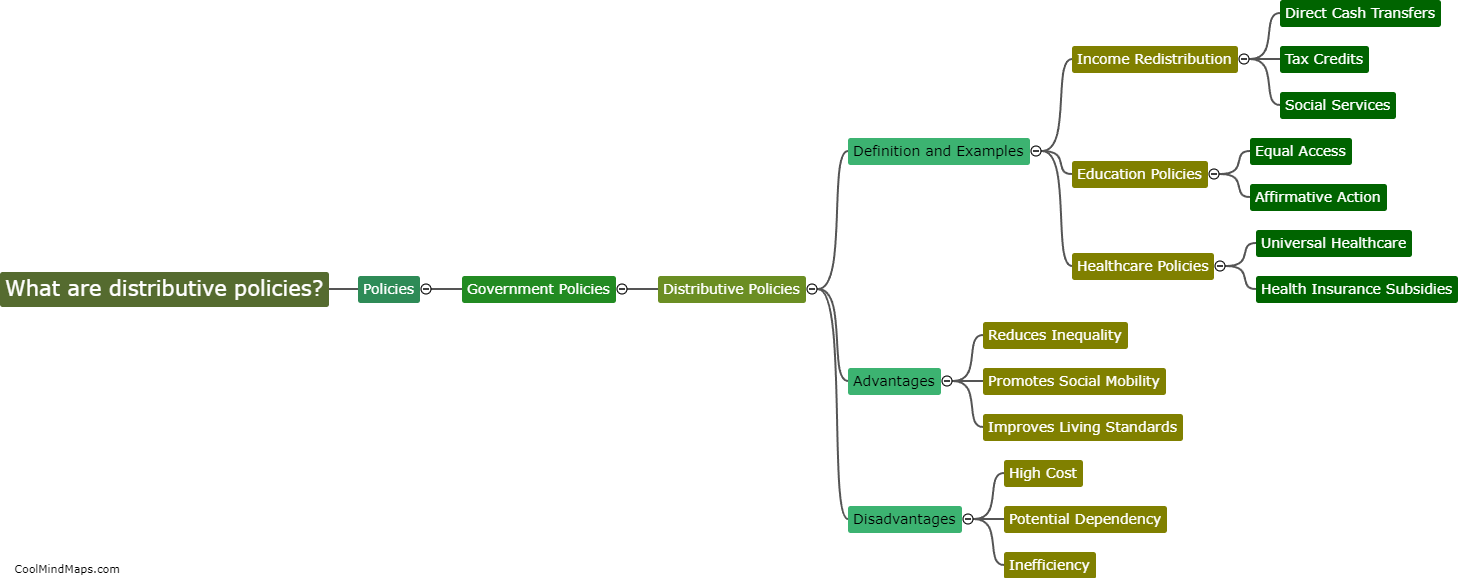
This mind map was published on 7 February 2024 and has been viewed 98 times.
